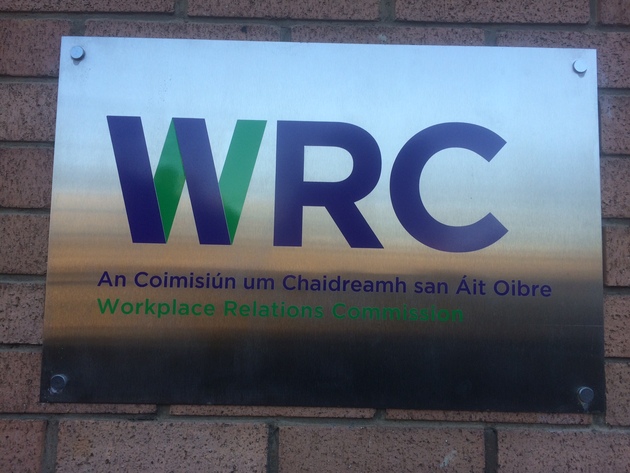Since the introduction of the Workplace Relations Act, 2015 a new system of adjudicating employment complaints and disputes was introduced. The new system is a simpler one and did away with the Rights Commissioner and Employment Appeals Tribunal service and was replaced by a WRC Adjudication in the Workplace Relations Commission.
The Workplace Relations Commission Complaint Form
The starting point for your claim is the WRC complaint form. (You can access the form on this page.)
If you have a complaint about an employment or equality right, or have a grievance under industrial relations legislation you must use the Workplace Relations Commission Complaint Form. (I have previously written an article about how to bring a complaint to the Workplace Relations Commission).
The complaint must be made within 6 months of the breach of your right, although the Workplace Relations Commission Adjudicator can extend this time to 12 months where there is reasonable cause shown for the delay. What is reasonable cause will be decided by the Adjudicator.
The WRC will copy all correspondence between the parties who are called the “complainant” and “respondent”. The WRC have a mediation service which will be offered to the parties in suitable cases.
This may simply involve a phone call from the WRC to the parties to see if they can broker a deal between the parties. If the mediator/WRC employee is unsuccessful the case will go ahead for adjudication.
Statements from the Complainant
In a claim for constructive dismissal, or an equality based claim, the complainant must submit a clear statement setting out the details of the complaint.
In all other unfair dismissal cases the respondent is obliged to provide a clear statement within 21 days of the request from WRC.
If this procedure is not complied with the hearing will still go ahead but the adjudication officer may draw an inference(s) from the failure.
In an employment equality case the complainant must set out in detail the facts from which discrimination can be shown or inferred.
In a constructive dismissal case the complainant should set out as much detail as possible on the WRC complaint form, including any grievances raised, investigations carried out etc.
In other unfair dismissal cases the respondent must set out in his statement the facts leading to the dismissal, including any disciplinary hearings, appeals, legal points etc.
Other Employment and Equality Cases
If a respondent intends relying on statutory records in his defence these should be sent to the WRC prior to the hearing. Any other points the respondent wishes to make-for example in relation to a legal point or the wrong employer being named-should be raised within 21 days of receipt of the complaint from the WRC.
WRC Hearing
Both parties will then be contacted with a date for the hearing, and asked to advise of any special requirements they have, for example, an interpreter. A postponement will only be given in exceptional circumstances, and the request must be made in writing to the WRC with an explanation. Consent of the other party would be useful, too.
It is up to the parties to ensure that the WRC has all relevant documentation prior to the hearing and that witnesses, if any, are available for the day.
Conduct of the Hearing
My experience of the way the hearing is held is that it can vary, depending on the particular WRC adjudicator.
Nevertheless, the adjudicator will indicate how he/she wants to conduct it and he/she will
- Ask questions of any party or witness
- Allow each party to question the other party and any witness
- Ensure fair procedures and natural justice
The WRC hearing is in private, so is not open to the public or media.
The written decision is supposed to issue within 28 days of the hearing with the parties and witnesses anonymised.
Update August, 2017
The WRC have issued, at the end of August, 2017, updated guidelines about the conduct of WRC hearings.
You can read these guidelines here.
Appeal and Enforcement
The decision can be appealed within 42 days to the Labour Court and the decision can be enforced through the District Court after 42 days if no appeal is lodged.
You may also be interested in
- How to Make a Complaint to the Workplace Relations Commission (WRC)
- Questioning at WRC Hearings and 10 Rules for Effective Cross Examination
Update July 2021-changes arising from Zalewski case
Significant changes arose from the Supreme Court decision in the Zalewski case. Take a look at these important changes, and this seminal decision from the Supreme Court in this blog post.
